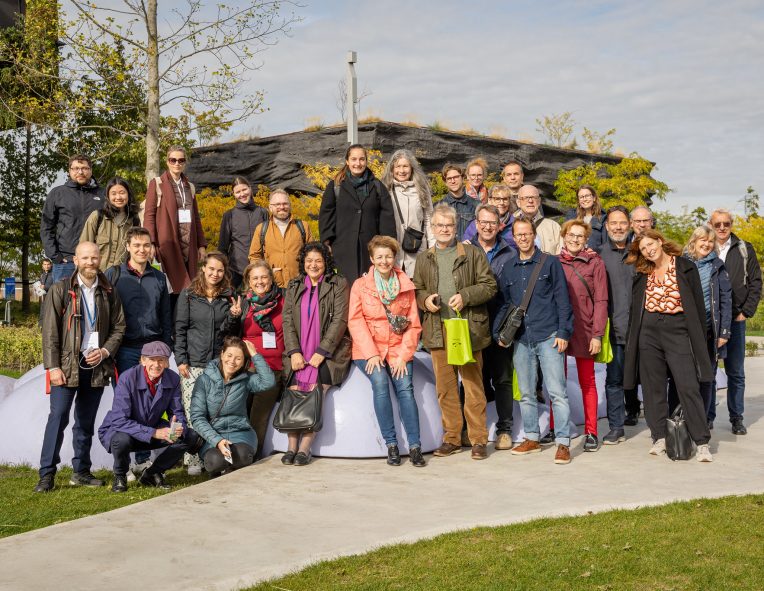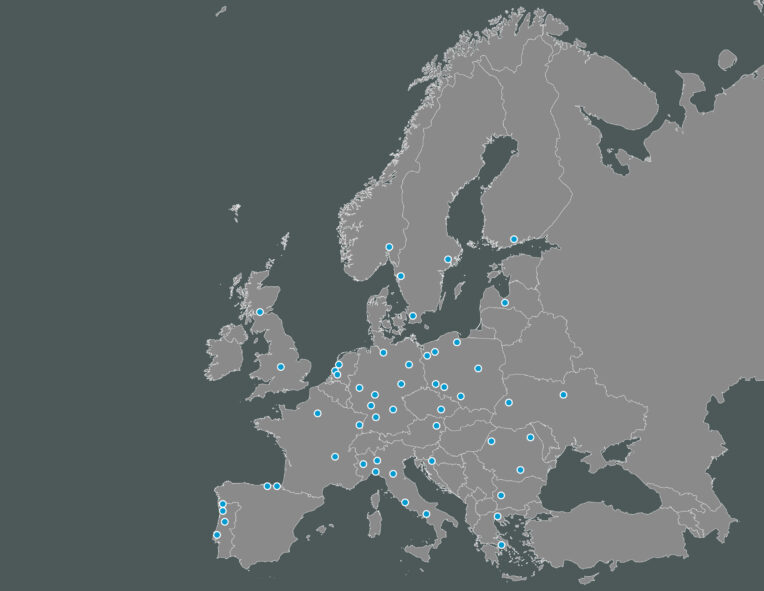METREX is an Associated Partner of this Interreg Central Europe project, which is led by Brno Metropolitan Area and which will focus on strengthening metropolitan cooperation and Governance in Central Europe.
The MECOG-CE project aims to identify the best tools, procedures and examples of good practices for strengthening metropolitan cooperation and governance in Central Europe and apply them in metropolitan areas towards strengthening integrated metropolitan strategic and spatial development.
The project includes partners from cities and metropolitan areas – many of which are METREX Members –, as well as research institutions. These are:
- The City of Brno (Brno metropolitan area)
- The City of Warsaw
- The City of Ostrava
- Stuttgart Region Association
- Joint Spatial Planning Department Berlin Brandenburg
- Metropolitan City of Turin
- Charles University
- University of Silesia in Katowice
- Metropolitan Research Institute
The project also involves associated partners, namely:
- Metropolitan City of Milan
- Upper Silesian Metropolitan Area
- Ministry of Regional Development of the Czech Republic
- Union of Polish Metropolises
- Eurocities
- METREX network of European Metropolitan Regions and Areas
The method of work will consist of intensive cooperation between the partner cities, research experts and representatives of international networks. The cooperation is based on international meetings aimed at sharing good practices. The first transnational partner meeting has already taken place in Brno. More about this meeting here. The second transnational meeting was held in Warsaw. Outcomes of this meeting are available here. Stuttgart was the venue for the third meeting of the partners and information on this meeting can be found here. The fourth meeting in Ostrava and its outcomes can be found here.
The project is divided into three parts:
- Within the first part, the partners summarized the current status quo of metropolitan cooperation and governance in the partner cities and then the best tools/examples of good practice were identified that can be shared and applied to other cities and metropolitan areas. At the same time, new tools were identified that can be used to deepen metropolitan cooperation and governance (inspiration from other parts of Europe).
- On the basis of the selected tools and examples of good practice, the partners created in the ongoing second part of the project “study clusters“, whose main objective was to deepen the sharing of experience in the implementation, management and transferability of these tools. This part also included pilot actions to test selected tools and methods in practice. During this part, partners will develop new solutions within each cluster and selected tools.
- The third part will focus on the main objective of the partners’ cooperation, namely the development of a Strategy for strengthening metropolitan cooperation and governance in Central Europe and the creation of action plans for cities and metropolitan areas involved.
The project also includes the production of position papers towards the European level, reflecting the position of metropolitan areas and cities and their challenges (in the context of strategic European documents). At the same time, a general transferable methodology for strengthening metropolitan cooperation and governance will be developed and shared with other cities in Central Europe.
Outputs and results
The individual outputs and results of the project are continuously updated throughout the project. These outputs and results will include the already mentioned documents such as the Strategy and Action Plans, pilot actions and proposed new solutions or Common Metropolitan Vision summarising the needs of metropolitan areas. In addition, sub-outputs or deliverables such as the analysis of existing best practices and tools for enhancing metropolitan cooperation or catalogue of newly developed solutions are also shared.
- The first deliverable of the project is the Identification of challenges specific for Central European Metropolitan Areas. This analytical document summarises not only the current challenges for Central European metropolitan areas, but also the opportunities for the enhancement of metropolitan dimension and the presence of this dimension in European and international policies. The summary of this analysis can be found in this article or in the form of leaflet.
- One of the main outputs of the project is the Common Metropolitan Vision. It is a policy document advocating the metropolitan agenda at European and national level, while summarising the needs and strengths of metropolitan areas. The vision is presented at different levels to strengthen metropolitan issues.
- Among other outcomes is also the Analysis of the metropolitan governance systems of metropolitan areas involved in the project and their best practices and tools. This unique document presents an analysis of the partner metropolitan areas in terms of their metropolitan structures and the functioning of metropolitan cooperation in the territory. The information given is also set in the national context in more detail. The next part of the document presents and compares the identified tools and examples of good practice that have proved successful in the metropolitan areas. In total, we have collected 47 examples of good practice. You can also take a look at the individual metropolitan structures and selected tools in this storymap or in the executive summaries of metropolitan areas and their best practices.
- Similar outcomes represents the Analysis of the best practices outside Central Europe region. The document presents 29 good practice tools that have been successfully applied in metropolitan areas that are not part of the project. These include the Amsterdam, Barcelona and Birmingham metropolitan areas.
- The document Status quo of metropolitan dimension in Central Europe and its future development summarizes the above-mentioned outcomes. It presents all the findings together to give a good picture of all the outcomes achieved.
The project has a projected budget of €1.647 million over three years, 80% of which will be co-financed by the European Regional Development Fund and 5 % through state subsidy.
An introduction to the project with an overview of all partners can be found in this storymap. The project has its own official website, which is maintained within the Interreg CENTRAL EUROPE website. The project also has its own profile on the social network LinkedIn.



